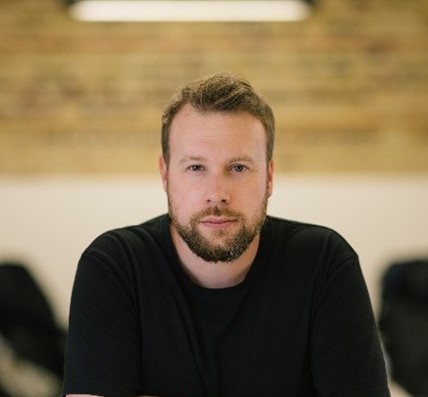In a world of spiv social media influencers dishing out “financial advice”, one app is on a mission to help people plan for a better financial future before they actually start saving and investing. We hear from Rob Brockington, CEO of Claro Money on why he set up the financial guidance (not advice) app and how it can help you make more of your money.
Why did you set up Claro Money?
There is a financial advice gap in the UK which means that current financial guidance is primarily focused on high-net worth individuals. Financial advice is well known to increase people’s wealth, as well as their confidence. However, the high cost of financial advice means that only 6% of British people are currently able to afford it.
We believe that everyone should be able to access financial tools and services, which is where Claro Money comes in. Financial coaching is an affordable, accessible alternative to financial advice, that can help a wide variety of people, regardless of how much they have to invest or where they are in their financial journey.
As well as financial coaching, we want people to be able to manage their finances all in one place. So, in Claro Money, you can track your spending, create your financial plan, set your goals, and find saving, investment and insurance products that suit you. This means you have all the tools, as well as the support, to achieve your goals.
Existing financial apps usually focus only on the end stages- the actual saving and investing. Claro Money is unique because we help people learn, plan, save and invest – the total financial journey.
How did you get the business off the ground?
We’re an investor-led startup, so we were able to bypass the tricky task of trying to secure funding before we could begin establishing Claro Money as a brand. Avoiding this allowed us to get things moving pretty quickly and focus on the most important task, which was spreading the word about the benefits of financial coaching. We’re the UK’s first financial coaching app, so ensuring that it works smoothly and is easy to use was our first priority. While it’s always nice to be the first, you also want to take your time and do it right. The security of the initial investment gave us the freedom to focus on the important stuff and carefully recruit the right people to share our vision.
What do you think of unregulated influencers on social media giving savings advice?
I can look at this issue from two perspectives. Largely, the rise of so-called ‘finfluencers’ is problematic in nature with the lack of regulation meaning anyone can claim to be a financial expert, regardless of skills or experience. This means the standard of advice varies considerably and there are people harnessing their power to sell unsuitable courses or products or making false claims around how they made their money. Those who do this, would go against the FCA’s financial promotion guidance, which states that promotions need to be fair, clear, and not misleading.
However, there are some finfluencers currently doing positive work in the finance space, offering suitable financial guidance, education, and information that’s accessible to people who may not be able to get it in another form. The rise of finfluencers does signal that finance is becoming more accessible. Traditional financial advice is often extremely expensive and only available to the wealthy, with only 6% of British people currently able to afford it. This means most young people are unlikely to have the money to spend on getting their financial guidance in this way.
Therefore, I think there is room for influencers in the financial space, however regulation needs to come quickly to avoid people, and in particular young people, being exposed to poor financial guidance which leads to risky financial decisions.
Your coaches give guidance rather than advice. What’s the difference?
When it comes to financial advice, which is a heavily regulated industry (as it should be), it’s unfortunately been designed to be only suitable for the ‘few’- and not the ‘many’. This is mainly due to how revenue is made from such services. Robo-advisors are making great headway in this space but there still seems to be a long way to go to fully provide the quality of service seen in traditional advice.
At Claro Money, we decided to build from the ground up, focussing on those (66% of the UK population) who are not able to access financial advice due to costs/capital requirements. Our app provides guidance-based financial coaching, and not directly ‘advice’, meaning our coaches suggest what you could do, whilst advisors would recommend specific products or course of action for you to take given personal circumstances and financial goals.
We’ve taken a personalised approach that can include 1-1 human interaction but merged with the latest technology to allow for a scalable solution. We are focused on ensuring we can offer this experience utilising services such as open banking, video calls, and fully digital access to savings, investments, insurance, and pensions (and more) but without the burdensome data collection techniques and capital requirement restrictions that put the traditional services currently out of reach to that demographic.
How does Claro you make money, and do you think people having to pay for guidance puts them off
One challenge we are facing is charging for a subscription for financial services. Whilst the Claro Money app is currently free and the business is pre-revenue, over time we do plan to introduce a subscription model.
Quite often, people expect that financial services will pay for itself. There is no other industry vertical like this: if you liken financial coaching to a gym personal trainer, you wouldn’t have the same expectations. However, in finance, if you are getting coaching and guidance, customers tend to expect to see the amount they pay returned to them in investment returns or cost savings. Time will tell if consumers are ready to pay for financial services via subscription, albeit at a low cost (£10/m). The irony is that the AUM model is what prevents most people from accessing financial expertise and tools in the first place and often leads to bias in the practice.
Hopefully, people will not be put off by a small fee for coaching as we feel it is the best way for consumers to gain a deeper understanding of their personal finances and access support to help improve them. Not to mention, the app itself is free, therefore there are multiple features users can access without any additional payments. As the Claro Money app delivers immediate value at the point of need via solutions such as video calling, live chat etc, we hope this will demonstrate real value to users and they’ll be happy to help.
What book would you recommend for people to make more of their money and why?
I’d recommend ‘Kakeibo: The Japanese Art of Budgeting & Saving Money’ by Fumiko Chiba. It’s a really useful guide that helps you to improve your budgeting skills. A ‘Kakeibo’ is essentially a journal – so you use it to document your spending and to make sure that saving is a part of your everyday life. It works based on four key questions:
- How much money have I got to work with?
- How much would I like to save?
- How much am I spending?
- How can I improve?
It’s a really interesting book and well worth reading. At Claro, we’re big on self-sufficiency and encouraging people to learn by themselves if they’re interested in managing their money a bit better. That’s why we run a competition to give away books each month, so people can improve their knowledge. The books are obviously finance-themed and centre around the idea of setting and reaching personal goals. We tend to get a great response to the competition, it turns out people really want to improve their knowledge and welcome any way to do so.
What’s the one tip you can give to help people manage their finances better?
Make a plan. It’s a lot easier to keep track of your spending and saving if you’re working towards something. Whether it’s to buy a house, upgrade your car or book a really nice holiday, you need to put in the effort and do a few calculations to make sure you get there (financially speaking) in time. Of course the temptation is always there to leave it up to chance or to hope that you’ll have enough to scrape together when the time comes, but the confidence that comes with setting a goal and working towards it really is unmatched. It brings a sense of calm to everything, too. The Claro Money app can help, as can a chat with a financial coach. Lots of people have gained clarity during the coaching sessions and realised the specific goals they’re hoping to reach in the future. Plus, you can track your progress using the app and hold yourself accountable if you’re a bit behind on your savings. Putting in a small bit of work now can really pay off down the line.
Rob Brockington, CEO of Claro Money, a financial coaching app

Richard is the founder of the Good Money Guide (formerly Good Broker Guide), one of the original investment comparison sites established in 2015. With a career spanning two decades as a broker, he brings extensive expertise and knowledge to the financial landscape.
Having worked as a broker at Investors Intelligence and a multi-asset derivatives broker at MF Global (Man Financial), Richard has acquired substantial experience in the industry. His career began as a private client stockbroker at Walker Crips and Phillip Securities (now King and Shaxson), following internships on the NYMEX oil trading floor in New York and London IPE in 2001 and 2000.
Richard’s contributions and expertise have been recognized by respected publications such as The Sunday Times, BusinessInsider, Yahoo Finance, BusinessNews.org.uk, Master Investor, Wealth Briefing, iNews, and The FT, among many others.
Under Richard’s leadership, the Good Money Guide has evolved into a valuable destination for comprehensive information and expert guidance, specialising in trading, investment, and currency exchange. His commitment to delivering high-quality insights has solidified the Good Money Guide’s standing as a well-respected resource for both customers and industry colleagues.
You can contact Richard at richard@goodmoneyguide.com


